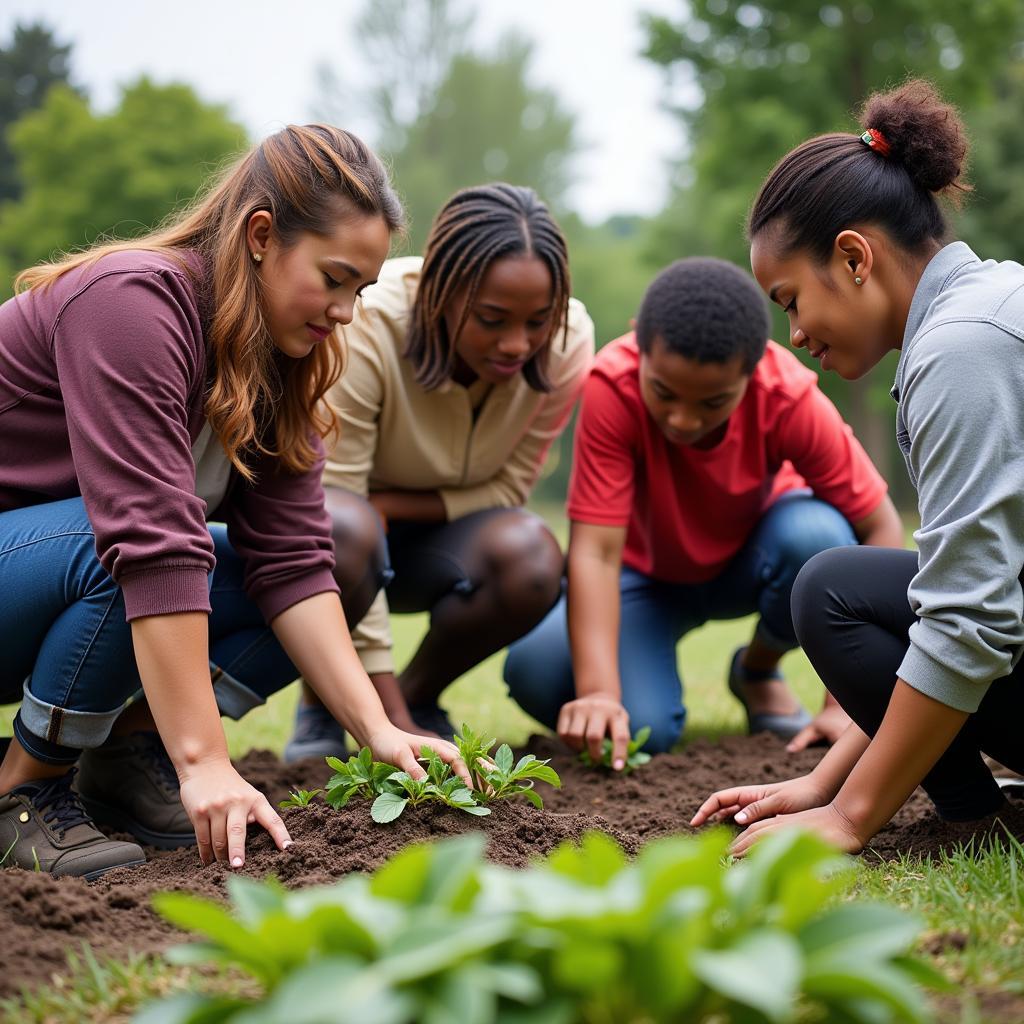The phrase “I don’t need society” is often uttered in moments of frustration, disillusionment, or even anger. It reflects a sense of alienation, a feeling that one doesn’t belong or that their values don’t align with the dominant culture. But what leads to this sentiment, and what are its implications for individuals and the world at large?
The Allure of Independence: Why Some Reject Society
The desire for autonomy and self-reliance is a fundamental human need. We crave the freedom to make our own choices, forge our own paths, and define our own identities. For some, this desire manifests as a rejection of societal norms and expectations. They may feel stifled by the perceived constraints of social structures, rebelling against what they see as conformity and a lack of individuality.
 Person turning their back on a crowd
Person turning their back on a crowd
Furthermore, negative experiences within society, such as trauma, discrimination, or exclusion, can lead to a deep-seated distrust and a desire to withdraw. This rejection can be a coping mechanism, a way to protect oneself from further pain and disappointment.
The Paradox of Human Connection: Can We Truly Exist Alone?
While the desire for independence is understandable, the reality is that humans are social creatures. We are wired for connection, belonging, and interdependence. From the moment we are born, we rely on others for survival, and throughout our lives, our well-being is inextricably linked to the quality of our relationships and our sense of community.
Rejecting society entirely can lead to isolation, loneliness, and a loss of the support systems that are essential for navigating life’s challenges. It can also limit personal growth and prevent us from experiencing the richness and fulfillment that come from diverse perspectives and experiences.
Finding Balance: Embracing Individuality Within a Connected World
The key lies not in rejecting society altogether, but in finding a balance between honoring our individual needs and recognizing our interconnectedness. It’s about creating a society that values both autonomy and belonging, where individuals feel empowered to express their unique selves while still feeling a sense of connection and shared purpose.
This can involve:
- Cultivating meaningful relationships: Seeking out like-minded individuals and building authentic connections based on shared values and interests.
- Engaging in constructive dialogue: Promoting open and respectful communication that bridges differences and fosters understanding.
- Advocating for social change: Working to create a more just and equitable society that values the contributions of all its members.
Reframing the Narrative: From “I Don’t Need Society” to “How Can We Build a Better Society Together?”
Instead of viewing society as an oppressive force, we can choose to see it as a work in progress, a collective endeavor that we all have a role in shaping. By shifting our focus from rejection to engagement, we can harness the power of our collective wisdom and creativity to create a world that is more just, compassionate, and fulfilling for everyone.
“It’s not about rejecting society,” says Dr. Sarah Thompson, a sociologist specializing in community development. “It’s about recognizing its flaws and working together to create something better. We all have a role to play in building a society that truly meets the needs of all its members.”
 Diverse group of people working together
Diverse group of people working together
Ultimately, the sentiment “I don’t need society” reflects a yearning for something more, a desire for a world that values individuality, connection, and the well-being of all. By embracing this yearning and channeling it into positive action, we can create a society that truly reflects our shared humanity.
For support in your journey towards building a more peaceful and connected world, please contact us. Our team at the Society For Peace is available 24/7 to provide guidance and resources. You can reach us at Phone Number: 02043854663, Email: [email protected] or visit us at our address: Khu 34, Bac Giang, 260000, Vietnam. You are not alone.